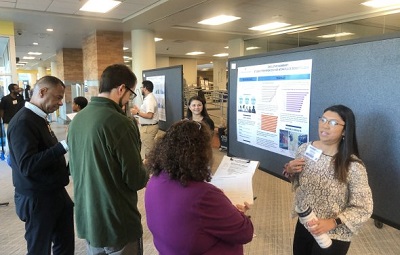Generating 614 nm Laser Light to Reset Barium Ion Qubits
Description/Abstract/Artist Statement
Trapped barium ions are a good candidate for realizing qubit, the fundamental unit of information in a quantum computer. A crucial step in the control of a qubit is a mechanism to reset its value to the ground state. In this project I generate 614 nm laser light necessary to perform the barium ion reset operation. To do this I begin with a 1228 nm laser and use a periodically poled lithium niobate (PPLN) waveguide device to perform second harmonic generation and produce 614 nm doubled frequency light. I characterized the laser output optical power as a function of laser diode current. I also evaluated the conversion efficiency of the PPLN device as a function of 1228 nm optical power. Estimates show that the resulting 614 nm optical power will allow suitably short qubit reset times.
Faculty Advisor/Mentor
Matt Grau
Faculty Advisor/Mentor Department
Physics
College Affiliation
College of Sciences
Presentation Type
Poster
Disciplines
Atomic, Molecular and Optical Physics | Optics
Session Title
Poster Session
Location
Learning Commons Lobby @ Perry Library
Start Date
3-30-2024 8:30 AM
End Date
3-30-2024 10:00 AM
Generating 614 nm Laser Light to Reset Barium Ion Qubits
Learning Commons Lobby @ Perry Library
Trapped barium ions are a good candidate for realizing qubit, the fundamental unit of information in a quantum computer. A crucial step in the control of a qubit is a mechanism to reset its value to the ground state. In this project I generate 614 nm laser light necessary to perform the barium ion reset operation. To do this I begin with a 1228 nm laser and use a periodically poled lithium niobate (PPLN) waveguide device to perform second harmonic generation and produce 614 nm doubled frequency light. I characterized the laser output optical power as a function of laser diode current. I also evaluated the conversion efficiency of the PPLN device as a function of 1228 nm optical power. Estimates show that the resulting 614 nm optical power will allow suitably short qubit reset times.


